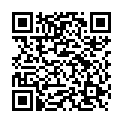|
|
|
| Module code: MAM-9.P |
|
10V (10 hours per week) |
|
12 |
| Semester: 9 |
| Mandatory course: yes |
Language of instruction:
German |
Assessment:
Written exam, lab report and project work
[updated 12.09.2004]
|
MAM-9.P Engineering and Management, Master, ASPO 01.10.2004
, semester 9, mandatory course
|
150 class hours (= 112.5 clock hours) over a 15-week period.
The total student study time is 360 hours (equivalent to 12 ECTS credits).
There are therefore 247.5 hours available for class preparation and follow-up work and exam preparation.
|
Recommended prerequisites (modules):
None.
|
Recommended as prerequisite for:
|
Module coordinator:
Prof. Dr. Ralf Oetinger |
Lecturer: Prof. Dr. Ralf Oetinger
[updated 06.09.2004]
|
Learning outcomes:
In the theoretical part of the course, students will acquire a detailed understanding of the computational analysis of manufacturing processes and of ERP systems. This knowledge combined with what was learned in the module ‘Manufacturing Equipment and Production Techniques’ will then be applied by the students in the project phase so that they learn how to solve the typical industrial production problems by working independently and in teams.
[updated 12.09.2004]
|
Module content:
Auslegung von Fertigungsverfahren
(Prozeßparameter, Berechnung, spezifische Eigenschaften, Werkzeuge, Standzeit, Einsatz, neueste Entwicklungen)
- Umformende Verfahren (Tiefziehen, Schneiden, Strangpressen, Schmieden,...)
- Zerspanende Verfahren (Drehen, Fräsen, Schleifen, ...)
- Abtragende Verfahren (Erodieren, Elysieren, ...)
- Fügen (Schweißen, ....)
Vertiefung ERP-Systemen
- ERP Systeme in der Produktion
- Produktionsplanung mit ERP (Absatzplan und Vertrieb)
- Disposition (innerbetrieblich und innerhalb der Supply Chain)
- Fertigungssteuerung
- Rückmeldung und Nachkalkulation
- ERP Einsatz in speziellen Branchen (Projektfertigung, Automotive, Serienproduktion)
Projektphase
[updated 12.09.2004]
|
Teaching methods/Media:
Accompanying lecture notes and lab documentation
[updated 12.09.2004]
|
Recommended or required reading:
Fritz, Schulze: Fertigungstechnik, VDI-Verlag, Düsseldorf 1998
Oetinger, R., ‘ERP Anwendungen in der Produktion’ (accompanying lecture notes)
Spur, Stöferle: Grundlagen der Fertigungstechnik, Carl Hauser Verlag, München
[updated 12.09.2004]
|


